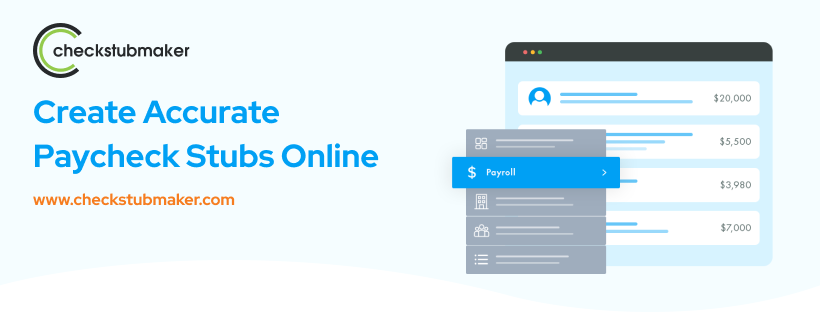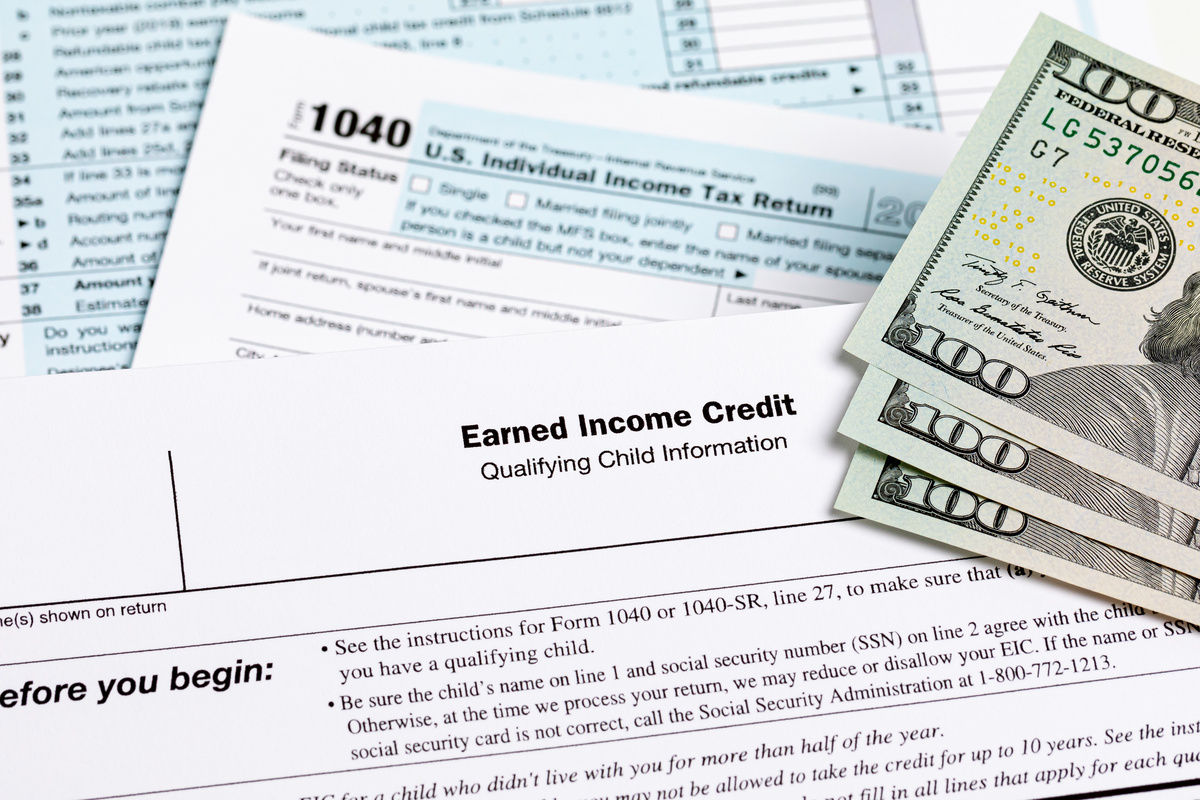
Everything You Need to Know About Understanding Your Generated Check Stub
It is not uncommon to feel confused when reading your check stub. All the different sections, abbreviations, and numbers can make anyone feel overwhelmed. Ho...
Feb 02, 2023Embarking on a new job journey often brings with it a mix of excitement and uncertainty, especially when it comes to discussing financial matters.

Embarking on a new job journey often brings with it a mix of excitement and uncertainty, especially when it comes to discussing financial matters. A common concern among many is, "What if they ask me for a paystub in my new position?" In this article, we at Check Stub Maker will aim to shed light on this query. We will delve into ‘why do companies check your pay stub ?' as well as the emerging trend of salary history bans in various states designed to protect employees' rights during the hiring process. Let's get started! What this article covers:
There are a number of critical reasons why your new employer might ask for one of your pay stubs.
One of the primary reasons a new employer might request a paystub is for the verification of salary. As per our payroll expertise, employers often seek to confirm the salary information provided by candidates to ensure accuracy and honesty in their application. This practice helps employers maintain fairness and consistency in their hiring process, even in scenarios such as ‘ employer asking for pay stub but I got paid in cash '. We can help you verify your salary by helping you create pay stubs with our customizable payroll solutions at Check Stub Maker.
Employers use this document to confirm that you have worked where you claimed to have worked, as well as to understand the duration of your previous employment. With our pay stub generator , you can easily record and update your employment information as often as you want. This information is crucial in assessing your experience and stability in the workforce.
Employers may also be interested in understanding the structure of deductions and benefits from your previous job. This insight can help them offer a competitive package that aligns with industry standards and your expectations.
Luckily, we have a few ways that you can discreetly avoid divulging your salary history to your new employer.
One effective strategy to bypass the salary history question is to prioritize networking over online applications. That's why we recommend leveraging your professional network to gain introductions and referrals. Based on our observations, this approach often leads to more personalized interactions where salary discussions can be navigated more comfortably.
You have the right to decline disclosing your current salary. The salary history ban, which forbids employers in some states from inquiring about your previous salaries, is supporting this position more and more. By understanding your rights, you can confidently navigate this conversation. 
Instead of disclosing your current salary, you can shift the conversation by asking the interviewer about the salary range for the position. Our findings show that this tactic not only helps you avoid revealing your salary history but also provides valuable information about whether the job aligns with your financial expectations. Understanding why employers may request paystubs and knowing how to navigate these requests is crucial in today's job market. At Check Stub Maker, we're committed to supporting you through every step of your employment journey.
In the evolving landscape of employment practices, salary history bans have become a significant topic of discussion. These bans are designed to promote equal pay and prevent wage discrimination. Let's explore the states and cities that have implemented salary history bans, ensuring you're equipped with the knowledge to navigate your career path effectively. Table: States And Cities With Salary History Bans
StateApplicationSan FranciscoEmployers can't request employees' salary histories. This measure aims to reduce the gender wage gap and encourage fair pay practices across all industries.AtlantaSalary history bans apply to city employees only, setting a precedent for private employers to follow suit. This initiative is part of a broader movement to ensure equitable compensation for all workers.ChicagoEmployers can't request or use salary histories in the hiring process. This policy is a step towards eliminating pay disparities and fostering a more inclusive workforce.LouisvilleEmployers can't request employees' salary histories. By removing previous salaries from the hiring equation, Louisville aims to create a more equitable job market.New OrleansSalary history bans apply to city departments and contractors only, reflecting a growing awareness of the need for fair pay practices. This move is a significant step in addressing historical pay inequities.Montgomery CountyEmployers can't request employees' salary histories. This measure is part of a broader effort to ensure that pay is based on skills and qualifications, rather than previous earnings.JacksonEmployers can't request employees' salary histories. This demonstrates a commitment to reducing wage discrimination and promoting equal pay for equal work.Kansas CityEmployers can't request employees' salary histories. This reflects a growing trend in the Midwest towards more equitable employment practices. It's a crucial step in closing the wage gap and ensuring fair compensation.St. LouisEmployers can't request or use salary histories to promote gender pay equity. This policy helps ensure that salaries are based on the job's requirements and the candidate's experience.New York CityOne of the first states to implement a salary history ban against employers. This is a landmark decision in the fight against wage discrimination. This ban is a critical component of the state's efforts to ensure fair pay for all workers.Albany CountyEmployers can't request or use salary histories as part of their commitment to equal pay. This local ordinance reinforces the importance of basing salaries on job qualifications rather than past earnings.Suffolk CountyEmployers can't request salary histories from potential employees. The ban is part of a broader initiative to address wage disparities and promote fair employment practices. This policy reflects the county's dedication to creating an equitable job market.Westchester CountyEmployers can't request salary histories from potential employees. This ban is another step towards achieving pay equity in New York. The ban helps ensure that compensation is fair and based on relevant factors.CincinnatiEmployers can't request or use salary histories to influence the hiring process. It's a significant move in the Midwest to combat pay discrimination. By banning salary history inquiries, Cincinnati aims to create a more equitable job market.ColumbusEmployers can't request or use salary histories in a bid to address wage inequalities among employees.ToledoEmployers can't request or use salary histories in a bid to encourage equal pay among employees. The ban is part of a growing trend in Ohio to address wage inequality. This policy is a crucial step in ensuring fair compensation for all workers.PhiladelphiaEmployers can't request or use salary histories in a bid to address pay discrimination among employees. This policy helps ensure that salaries are based on job requirements and qualifications.PittsburghEmployers can't request or use salary histories in a bid to encourage equal pay among employees. This policy is crucial in the city's efforts to create an equitable job market.ColumbiaEmployers can't request or use salary histories in a bid to reduce wage disparities among employees. It reflects South Carolina's growing awareness of the need for fair pay practices. The ban is a significant step in addressing wage discrimination.Richland CountyEmployers can't request or use salary histories. It forms part of a broader effort to ensure that pay is based on skills and qualifications, rather than previous earnings.Salt Lake CityEmployers can't request or use salary histories in a bid to reduce wage disparities among employees. This demonstrates Utah's commitment to reducing wage discrimination and promoting equal pay for equal work.The spread of salary history bans across various states and cities is a positive step towards ensuring fair and equitable pay practices. At Check Stub Maker, we encourage you to stay informed about these changes and understand your rights in the job market while we help you make paystubs and avoid error in check and check stub .
Let's address some frequently asked questions about the legality of potential employers asking for paystubs and the implications of the salary history ban in these scenarios.
The salary history ban is primarily aimed at combating wage discrimination and closing the gender pay gap. By preventing employers from inquiring about previous salaries, these laws ensure that salary offers are based on the job's requirements and the candidate's qualifications rather than their past earnings. This shift helps create a more equitable and fair job market. 
In states with salary history bans, employers don't have the legal right to ask for or use your past salary information as a basis for determining your new salary. However, this varies by location, and it's crucial to be aware of the specific laws in your state or city. Through our practical knowledge, in places without such bans, employers may still request this information, although you aren't obligated to disclose it.
After accepting a job offer, your focus should shift to understanding your new role and compensation package. Drawing from our experience, it's important to ensure that your pay aligns with your qualifications, experience, and the responsibilities of your new position. If you believe there are discrepancies or issues of pay discrimination, you have the right to raise these concerns with your employer or seek legal advice.
Consider using our pay stub creator at Check Stub Maker to manage and document your increased earnings effectively. After putting it to the test, keeping accurate records of your pay raises with our digital payroll services can be beneficial for future financial planning, tax purposes, and potential job transitions. 
In this article, we've explored the question, "What if they ask me for a paystub in my new position?" and delved into the implications of the newly passed salary history ban in numerous states. Understanding these changes is crucial for both employers and employees to navigate the job market fairly and legally. Whether you're managing your earnings or amending a wrong pay period on check stub , our pay stub generator at Check Stub Maker is guaranteed to give you a hassle-free experience. So, make the right call for you and your business, and let us at Check Stub Maker help you in every step of your financial journey. If you want to learn more, why not check out these articles below:

It is not uncommon to feel confused when reading your check stub. All the different sections, abbreviations, and numbers can make anyone feel overwhelmed. Ho...
Feb 02, 2023
If you're new to payroll processes, you may be thinking about check stubs meaning and wondering, “What do check stubs look like?” This is a common question for many employees and employers alike.
Oct 04, 2024
In the world of financing, securing a loan can often hinge on presenting the right paperwork, particularly with a financial services company like Wells Fargo...
Jun 06, 2024